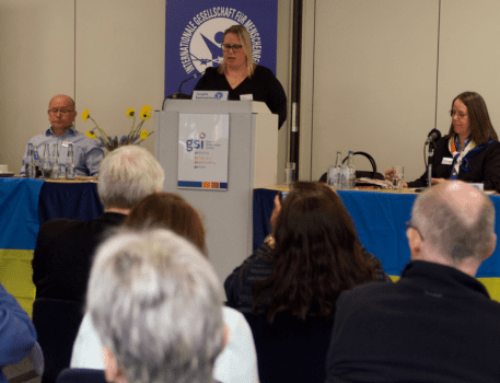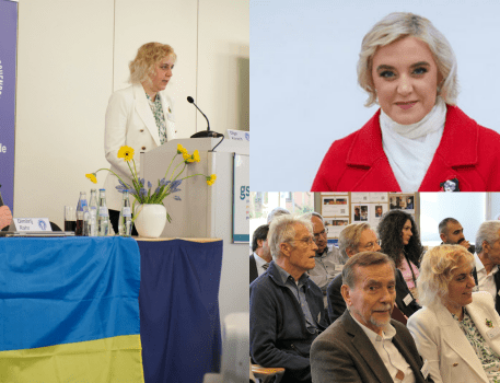Monitoring of the trial of A. Khandrykin (a summary of the proceedings of 14.05.18 and 1.06.18)

On May 14, in the Dniprovsky District Court of Kiev, a regular court session suppose to be held on the case of the ex-employee of the “Berkut” riot police unit concerning the events that took place on the Maidan in January 2014. Andrei Khandrykin is one of three accused (two others are outside the territory of Ukraine) in the torture of protesters during the confrontation between the government and the protesters near the football stadium in Kiev.
Unfortunately, the hearing did not take place because half an hour before the session, a telegram was sent to the court from the Prosecutor General’s Office stating that the prosecutor who is conducting the case will participate in another court session. Representatives of the International Society for Human Rights note that such a notification, made half an hour before a pre-planned session put the judge, the lawyer and first of all the accused, in an inconvenient position, since the accused lives in Kharkov and for each session he goes from another city at his own expense. The victims and their representative did not appear in the court, which may indicate that the prosecutor informed them in advance that the session would not take place.
The lawyer also noted that not only one (in relation to whom there was a message from the Prosecutor General’s Office), but six prosecutors dealt with this case procedurally. Moreover, the Prosecutor General’s Office has nothing to do with this matter at all, and it is the prosecutor participating in the process who should notify the non-appearance and justify it. Also, the court and the lawyer had doubts about the reasons for non-appearance, since the prosecutor had already been unable to provide the required written evidence for several sessions.
On June 1, the court session was held, but the prosecutor could not provide evidence of the validity of his failure to appear and suggested sending an official appeal to the prosecutor’s office. During the trial, a list of written evidence was submitted, including materials that in fact cannot be used as evidence. Despite the remark of the judge and the requirements of the Criminal Procedure Code, the prosecutor stated that he considers it necessary to attach these documents to the case. Also, a video of the investigative experiment was viewed, in which one of the victims indicated how exactly in his memory events were taking place at the stadium’s colonnade. But, given that according to the law on amnesty in relation to the protesters on the Maidan (The Law of Ukraine “On Preventing the Persecution and Punishment of Persons Regarding Events that Occurred During Peaceful Assembly” of 21.02.14) all actions of the protesters were recognized as legitimate, the actions of law enforcement officers, including employees of the Kharkov “Berkut”, are considered unilaterally, without consideration of motives and expediency.
As noted earlier, such an approach can greatly affect the comprehensiveness and objectivity of the process. It must also be taken into account that, according to the practice of the European Court of Human Rights, the lack of an adequate and effective opportunity to question the testimony of the prosecution that can be used by the court to order the finding of guilt directly violate the provisions of the European Convention on the Protection of Human Rights and Fundamental Freedoms (the case of Pichugin v. Russia). Also, the ECHR indicates that the court must balance any difficulties that the defendant may experience in defense, if they were caused by restrictions on his rights (Durson v. the Netherlands case).
Experts of the International Society for Human Rights will continue monitoring and clarifying the details of this litigation. The previous materials can be found here.
Expert Council








Leave A Comment